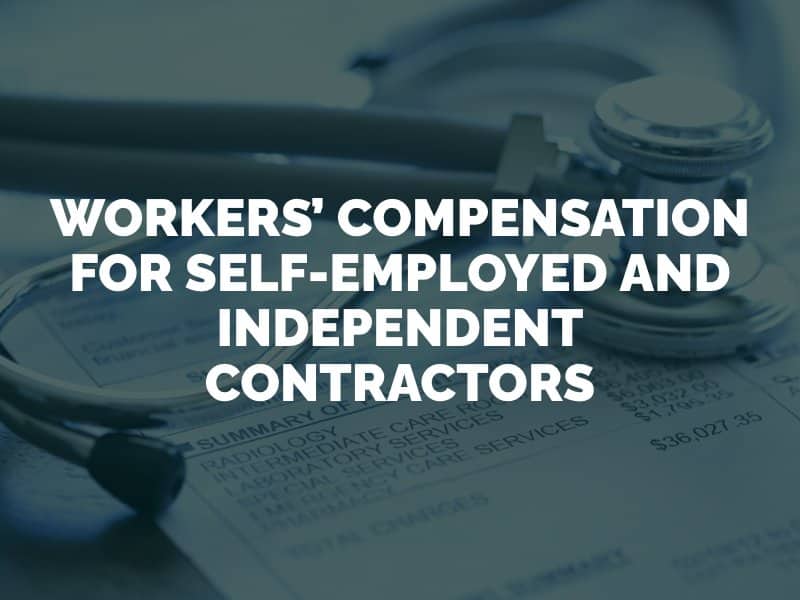The workers’ compensation program in Colorado provides a financial safety net for workers who get injured on the job or in the course of their employment. Those who qualify for workers’ comp benefits can recover compensation for their medical bills and lost wages without being required to prove fault. Traditionally, however, workers’ compensation only provides benefits to employees, not independent contractors and those who are self-employed. This can make it difficult to collect compensation if you work for yourself in Denver.

Workers’ compensation in Colorado applies to all employees, both part-time and full-time. Employees are eligible for workers’ comp benefits whether they are paid an hourly wage or salary. Workers’ comp does not, however, apply to independent contractors and the self-employed under Colorado law. An independent contractor is someone who has control over how his or her services are performed and who is engaged in a profession, trade or occupation of the service being performed.
If you are an independent contractor, freelancer, sole proprietor or are self-employed, you are not covered by workers’ compensation in Colorado. Independent contractors are exempt from workers’ comp coverage as long as they have not been misclassified as such. There are other exemptions, as well, such as workers who perform less than $2,000 per year in repair work for a business, commission-based real estate agents and brokers, and railway workers who are covered under federal law.
It is important to make sure that your employer has not misclassified you as an independent contractor when you are legally an employee, especially if you get injured on the job and are wondering if you qualify for workers’ comp benefits. In general, you should legally be classified as an employee, and not a contractor, if you receive a W-2 form at the end of the year from your employer. There are other stipulations, as well, that could technically make you an employee under state law.
In Colorado, the law makes it mandatory for all employers with one or more employees to purchase workers’ compensation insurance. If you are self-employed and have at least one employee working for you – not including yourself – this means that you must purchase workers’ comp insurance.
If you do not have any employees, you are not required to buy workers’ comp insurance in Colorado. Sole proprietors, corporate officers and members of a limited liability company may also not have to purchase workers’ compensation insurance. You may wish to opt into this program anyway, however, to meet the terms of a contract or protect yourself from having to pay for medical bills and lost wages out of pocket after an injury.
Your options for collecting financial compensation are limited as an independent contractor or sole proprietor who has not purchased workers’ compensation insurance for himself or herself. Many health insurance companies do not cover work-related accidents, and many car insurance companies won’t cover accidents if the vehicle was being used for commercial or business purposes at the time. This could limit your options until you have to pay out of pocket for your injury or illness.
One other option that may be available is a third-party insurance claim or injury lawsuit. Third-party liability could give you outside insurance coverage for your medical bills and lost wages. If you were injured in a car accident while driving for your job as an independent contractor, for example, but the other driver is at fault for the collision, you could recover compensation through that driver’s auto insurance company. You must have proof of fault or negligence to recover compensation with a car accident lawsuit in Denver.
Contact a Denver personal injury attorney after an injury or illness as someone who is self-employed or working as an independent contractor in Denver. You may or may not be eligible for workers’ compensation coverage or a personal injury settlement. A lawyer can help you review your recovery options.